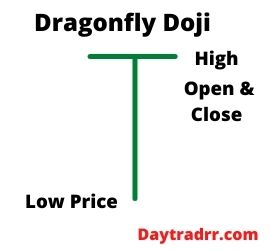Cornering the Market – What Does “Corner the Market” Mean?
 Cornering the market is acquiring and holding or owning enough stocks, assets, or commodities to effectively manipulate the market price. Typically, it entails acquiring a sufficient number of a company’s shares or owning a big enough commodities position to control its price. The phrase means that the market has been pushed into a corner and has nowhere to go to locate additional vendors and buyers. To be able to corner a market, an investor must have tremendous financial resources. This is because it entails owning a controlling interest in the physical assets. It may also refer to amassing a substantial proportion of economic activity in a certain area. For example, a telecom company that controls 90% of the wireless industry is considered to have cornered the market.
Cornering the market is acquiring and holding or owning enough stocks, assets, or commodities to effectively manipulate the market price. Typically, it entails acquiring a sufficient number of a company’s shares or owning a big enough commodities position to control its price. The phrase means that the market has been pushed into a corner and has nowhere to go to locate additional vendors and buyers. To be able to corner a market, an investor must have tremendous financial resources. This is because it entails owning a controlling interest in the physical assets. It may also refer to amassing a substantial proportion of economic activity in a certain area. For example, a telecom company that controls 90% of the wireless industry is considered to have cornered the market.
In its most basic form, cornering the market occurs when someone purchases all or most of the available supply of a security or commodity. This creates an artificial scarcity, which drives up the price. As a result, the market manipulator can profitably sell some of his holdings at a huge profit. There are several approaches to cornering a market. The easiest way is to purchase and stockpile a large percentage of a specific commodity. Cornering is more easily performed in the futures trading market than in any other market. For example, an investor may acquire a large number of futures contracts for a specific commodity. In turn, the resulting scarcity may artificially inflate the price. Eventually, the manipulator can divest his holdings reaping a large profit in the process.
Cornering the Market – Legally
Most businesses want to dominate their respective marketplaces in order to increase their earnings. A corporation may desire to charge a higher price for a particular product or range of items. By securing the necessary market chare, they are virtually able to charge whatever they want. They can safely raise prices when they control a significant enough competitive advantage. Their dominant market position affords this without worrying about losing business or profits.
Large institutions may sometimes corner a market through legal practices. When compared to other companies in the same industry, a firm that has cornered the market enjoys a huge competitive advantage. However, if a corporation has a monopolistic market share, the Department of Justice’s Antitrust Division may investigate. For example, Microsoft faced such scrutiny as a result of its dominant position in the computer operating system business.
The Securities and Exchange Commission and the Commodity Futures Trading Commission regulate and monitor the securities and commodities markets, respectively. These two government agencies attempt to prevent and prosecute illegal trading behavior. Particularly, when it comes to monopolizing the market in stocks, bonds, foreign exchange, or commodities.
The Securities and Exchange Commission and Commodity Futures Trading Commission established the Joint CFTC-SEC Advisory Committee on Emerging Regulatory Issues to develop recommendations on emerging and ongoing issues relating to both agencies. The establishment of the Joint Committee was one of the 20 recommendations included in the agencies’ harmonization report issued in 2009. Subjects to be addressed by the Joint Committee shall include the identification of emerging regulatory risks, assessment and quantification of the impact of such risks and their implications for investors and market participants, and the agencies’ efforts on regulatory harmonization. (Source: sec.gov)
Cornering the Market – Illegally
The concept of cornering the market is frequently related to illicit activities. Markets are designed to promote competition and competitive price determination. This is not the case when someone has cornered a market by reducing the number of interested vendors and purchasers. As a result, the process breaks down and may require governmental action to be restored. The competitive process only works when competitors set prices honestly and independently. When competitors collude, prices are inflated and the customer is cheated. Price fixing, bid-rigging, and other forms of collusion are illegal and are subject to criminal prosecution by the Antitrust Division of the United States Department of Justice.
Disadvantages of Cornering the Market
Despite its prevalence in commodities trading, cornering the market is difficult to do. Investors who try usually cave under the pressure of sheer magnitude. It’s a powerful position to hold, and most companies lack the infrastructure or means to pull off a corner successfully. When the attempt to corner a market becomes known, it becomes that much more difficult to achieve. Pressure is suddenly applied by other companies in the same space to defend their resources and market share.
- Requires massive resources – Few investors have sufficient capital to corner a market. For example, almost every attempt to corner a commodities market has failed. Prices may briefly rise dramatically when a speculator increases his or her purchasing. However, the trader must eventually sell in order to profit. When he sells, prices might drop swiftly as the market understands the purchasing frenzy is ended. As a result, the rewards from a market monopoly would be elusive.
- Government regulation and intervention – The government may also intervene to prevent anti-trust activities or monopolistic behavior. For example, the margin requirements for commodities futures contracts may be dramatically increased. The aspiring trader may not have the cash to put up the additional margin necessary to keep their position. They are then compelled to sell a portion of their interests. The house regulations apply to all gamblers. And traders, even if the majority aren’t gamblers, should be aware that if the stock exchange feels threatened, it will modify the regulations to defend itself. The Chinese stock exchange regulators are particularly skilled at this.
Example – Cornering the Market in Silver
The United States was dealing with severe inflation in the 1970s. Two brothers, Nelson, and Herbert Hunt decided to make a daring wager. Their activities would send silver prices skyrocketing – at least for a period of time. The Hunt brothers recently acquired wealth following the death of their father, oil billionaire HL Hunt, in 1974. They used their inheritance money to purchase actual silver and futures contracts. In fact, the brothers amassed as much silver as they could get their hands on. Their objective was to drive up prices by creating a scarcity of silver.
Futures contracts are often settled in cash. The difference amounts to the price at the beginning of the contract and the price on the day of expiry. Instead of settling their differences, the Hunt brothers elected to take delivery of silver. As silver prices rose, several traders began to short sell silver futures contracts, believing that the high prices would not last. However, the Hunt brothers were able to acquire anything the bear traders in silver were dumping. This was due to their own personal wealth, borrowed money, as well as money obtained from foreign investors.
Silver Thursday
At one point, the Hunt brothers’ silver investments were worth 4.5 billion dollars. That is nearly 15 billion dollars today. The US government was eventually forced to intervene. The Hunt brothers’ actions were interpreted as an attempt to influence the nation’s silver stockpiles. With increased government pressure, the Hunt brothers’ financial lines of credit began to dry up. The Hunt brothers missed their margin calls for the first time on March 27, 1980. It was a Thursday that would go down in history as ‘Silver Thursday.’ It was clear that the Hunt brothers no longer had the ability to keep silver prices stable. Panic selling erupted, causing prices to plummet to $11 per ounce. (Source: cnbctv18.com)
Up Next: What Is Wash Trading for Cryptocurrency and Stocks?

Wash trading occurs when a buyer and seller conspire to deceive the market by artificially inflating the value of a stock or cryptocurrency. They do this without incurring any actual risk or altering their trading positions. The buyer and seller basically move the security and monies back and forth, but only the first transaction is publicly recorded. The second exchange simply restores the security and money to its original owners, taking place behind closed doors. The federal government outlawed wash trading with the Commodity Exchange Act in 1936. However, it has recently come under attention again with the emergence of high-frequency trading and cryptocurrency exchanges.
In other words, a wash trade is a type of fictitious trade. A transaction or series of transactions gives the appearance of genuine purchases and sales. However, the trades were entered without the intent to take a genuine market position or to execute genuine transactions subject to market risk or price competition. As a result, the SEC has determined that wash trading has only one motive. It is done for the express purpose of feeding misleading information to the market. In some situations, wash trades are executed by a trader and a broker who are colluding with each other. Other times, wash trades are executed by investors acting as both the buyer and the seller of the security or cryptocurrency. Wash trading is illegal under U.S. law. Further, the IRS bars taxpayers from deducting losses that result from wash trades from their taxable income.




